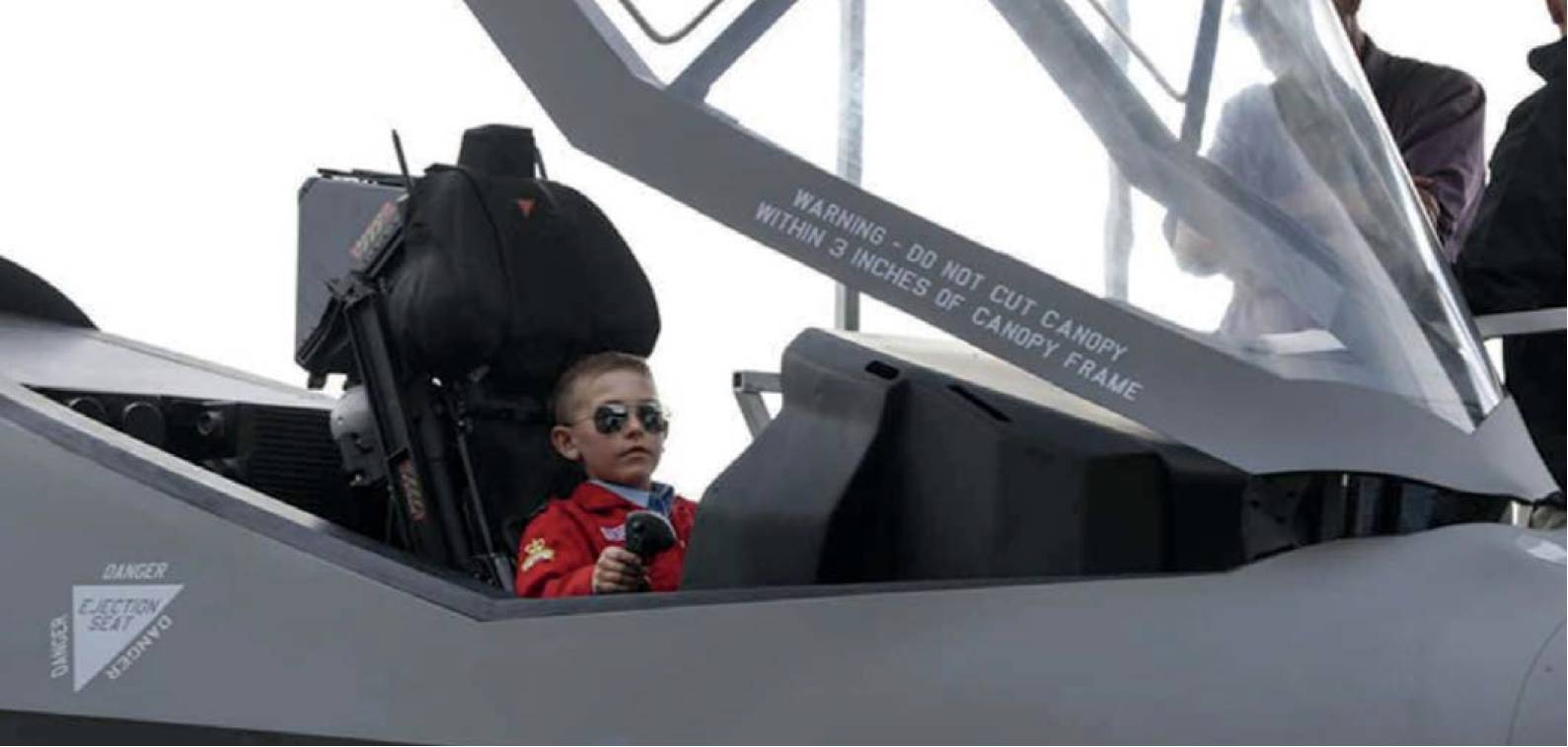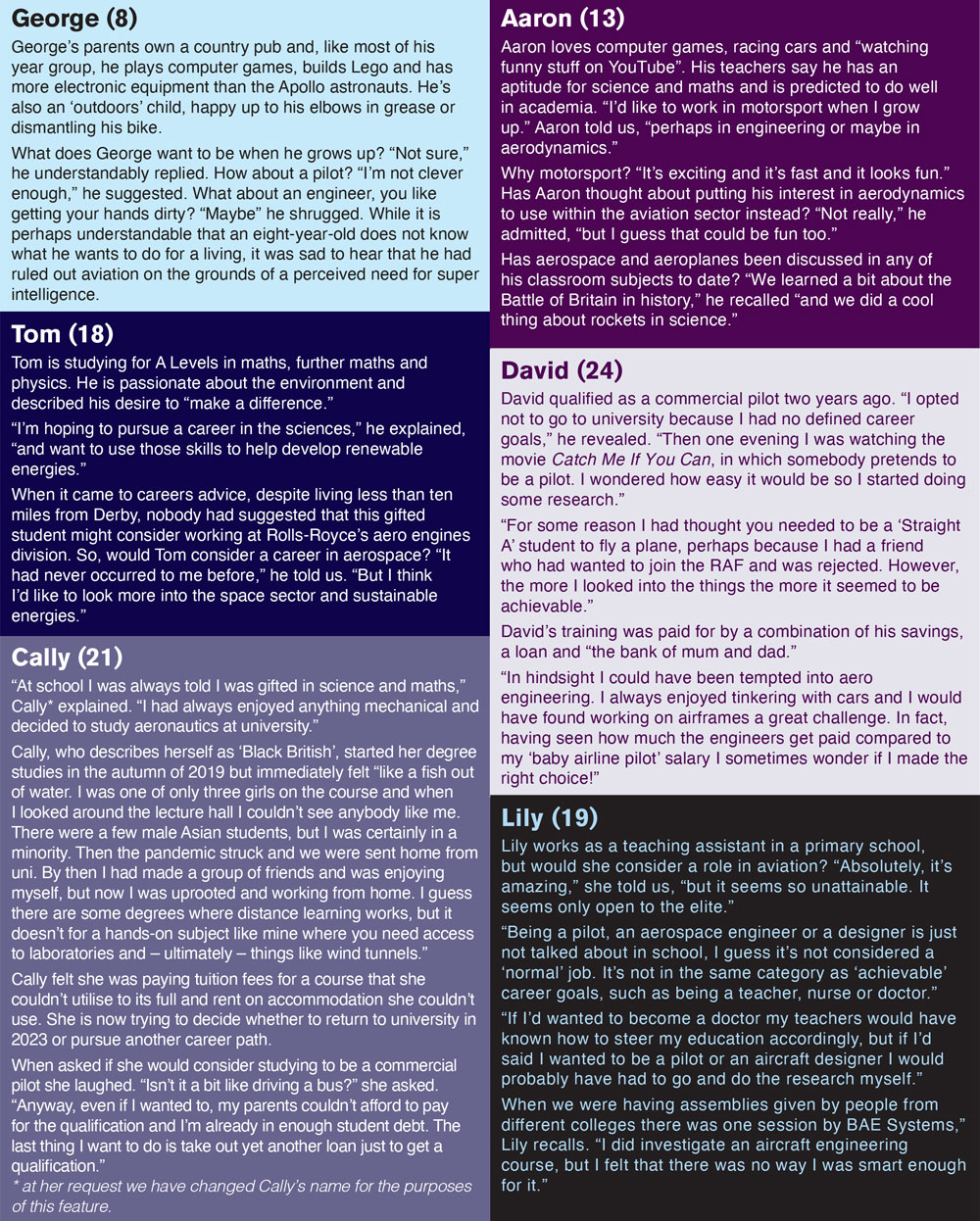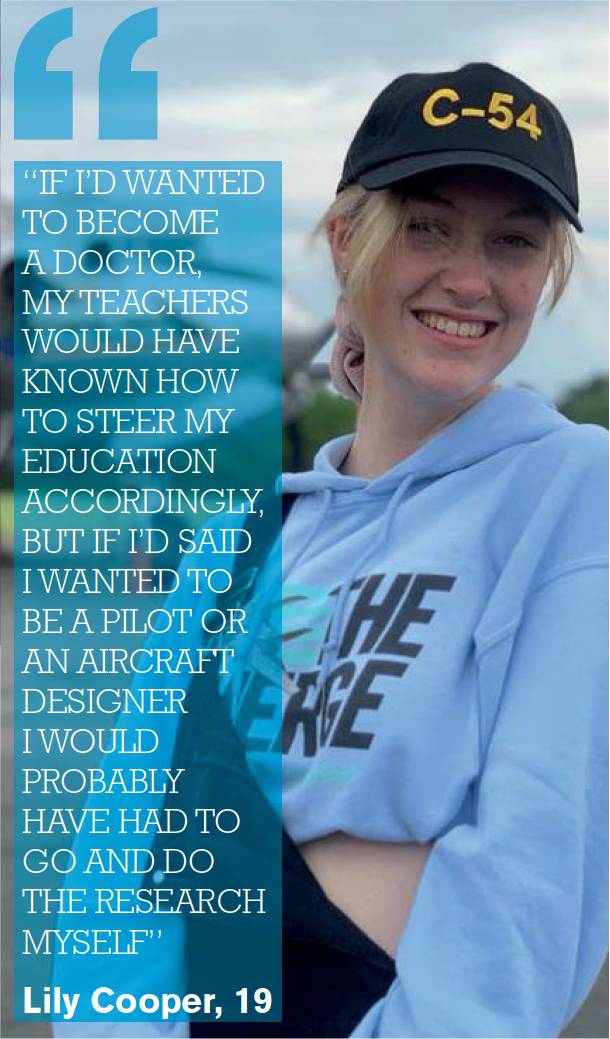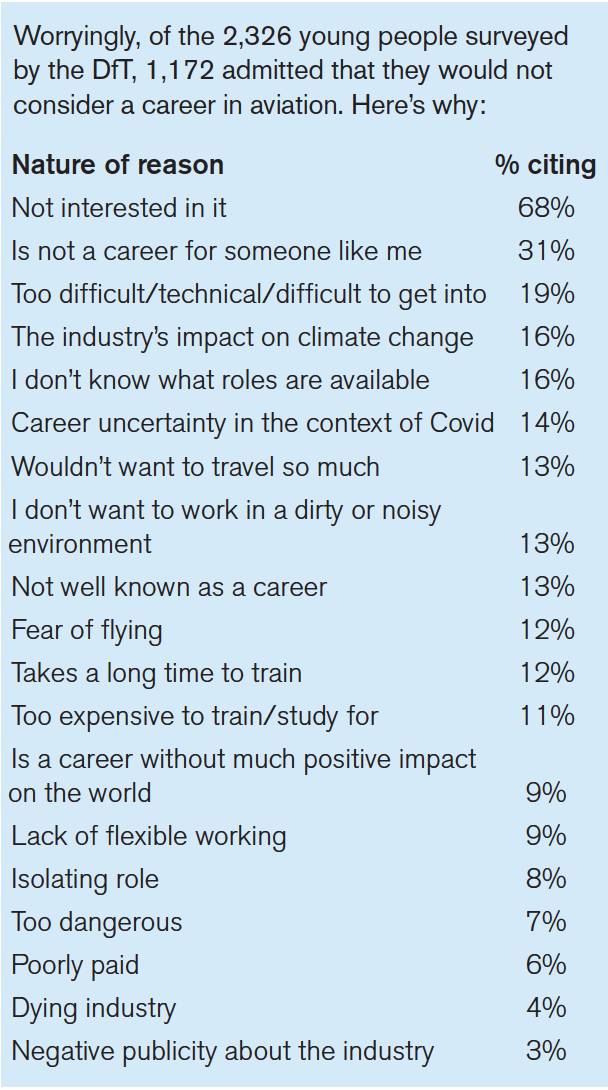AEROSPACE Aviation careers and recruitment
The seventh generation
Does aviation have an image problem? STEPHEN BRIDGEWATER speaks to the next generation of aviation professionals and argues that the problem may lay more in awareness than perception.
 Crown Copyright/RAF Cosford Photographic Section
Crown Copyright/RAF Cosford Photographic Section
Since Wilbur and Orville first took to the skies in 1903 there have been six generations of aviation professionals, but where will the seventh come from? The days of an enthusiastic youngster being invited up to the cockpit mid-flight or cleaning aeroplanes in exchange for flying lessons are mostly over and, with airfield gates locked and the number of airshows dwindling, the opportunities to expose young people to aviation and engineering are few and far between.
How this is affecting the perception of aerospace as a career option is something that many have pondered and in researching this subject we spoke to six youngsters of differing ages to gauge their views. Those interviews appear in full as an Insight Blog on the Society’s website and snippets are reproduced here.
While these six vox pops provide an interesting bellwether of first-person opinion, the UK Department for Transport (DfT) recently completed a more in-depth survey of a diverse range of 2,326 young people aged 16-24 years old. The online study was designed to collect quantifiable data on how well understood and considered careers in aviation and maritime are, identify drivers and barriers to working in these sectors, and to demonstrate how those from diverse backgrounds view the industries. The results were very telling.
Just over half (51%) of the young people interviewed had had some form of exposure to aviation. Around one in six had family or close friends that work in the field (16%), just over a quarter (27%) lived near an airport and 12% lived near other facilities, such as flying schools.
Interestingly, when asked about their exposure to aviation, 53% of young people from white ethnic groups said yes compared to just 39% of those from black ethnic groups. The mix between male and female was fairly evenly split with 53% of males replying yes compared to 49% of females and the split between socio-economic backgrounds was also reasonably even.
A persistent trend among our six interviewees was a lack of aerospace representation within their school and college curricula. So where are young people obtaining their careers advice in 2022? Of those interviewed as part of the DfT study, 55% said they conducted their own research online. Around half (47%) also lent on professional careers advisers, teachers (45%) or parents and guardians (50%) for information while just 30% attended careers fairs and only 28% spoke directly to employers. Interestingly, just 20% relied on social media for careers information.
 ACCORDING TO THE DFT STUDY, 36% OF YOUNG MEN COMPARED TO JUST 24% OF YOUNG WOMEN. WERE LIKELY TO CONSIDER AN AEROSPACE CAREER.
ACCORDING TO THE DFT STUDY, 36% OF YOUNG MEN COMPARED TO JUST 24% OF YOUNG WOMEN. WERE LIKELY TO CONSIDER AN AEROSPACE CAREER.
According to the DfT, three-in-ten (30%) young people surveyed said they would consider a career in aviation, while just over half (51%) would not. Nearly one-fifth (18%) said they did not know. Delving deeper, young men were more likely than young women to consider an aerospace career (36% compared to 24% of young women) and the DfT says the perception of aviation being a male-dominated industry and the resulting disincentive among females came through in qualitative interviews.
By ethnicity, young people from Asian British ethnic groups were less likely than their peers to consider a career in aviation (25% compared to 30% across other ethnic groups). There was some evidence that cultural preferences for well-known, more ‘traditional’ careers, such as medicine, law or finance underpinned this.
The DfT also found concern about climate change to be a factor deterring young people from pursuing or staying in a career in aviation.
Qualitative interviews conducted by the DfT revealed that having a positive impact on the world was a desirable characteristic for careers, and the impact of the aviation industry on climate change jarred with this ideal. That said, some did recognise that being part of trying to better the industry in this regard could be exciting.
“As it stands at the moment, it is nonrenewable and damaging towards the environment,” said one 18-21-year-old white male interviewed by the DfT. “I guess I have a slight moral objection. However, I know a slight moral objection is not going to stop the sector advancing. If I worked in the sector, I could try implementing technologies that help reduce environmental impact.”
The RAeS has a thriving and successful Young Persons Network, as do organisations, such as the Air League and the Honourable Company of Air Pilots, but in conversations with their members many come from aviation backgrounds. They often have family members who are engineers, designers or pilots and many come from military families. Does that mean we are merely ‘preaching to the converted’?
So what can we take away from this sample of British youngsters? Firstly, while the aerospace sector does have an image problem, it has more of an awareness problem. Some of the young people we spoke to considered themselves ‘not clever enough’ to become engineers or pilots but others were simply not aware of the job opportunities within the industry.

Over the past decade, significant effort has been spent to ensure that opportunities to join this sector are available to all, regardless of race, religion, gender or belief. This is a great step forward but, if young people are not aware of the possibilities, that work will all be in vain. The aerospace sector is at its most exciting point in decades. Private space flight, swarming drones, eVTOLs, sustainable fuels and alternative powerplants are just a handful of the radical developments under way and Britain’s aerospace industries are at the forefront of these and other advances.

